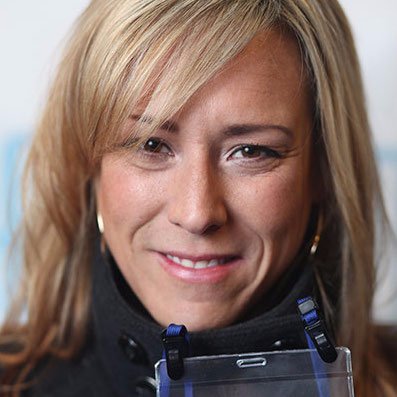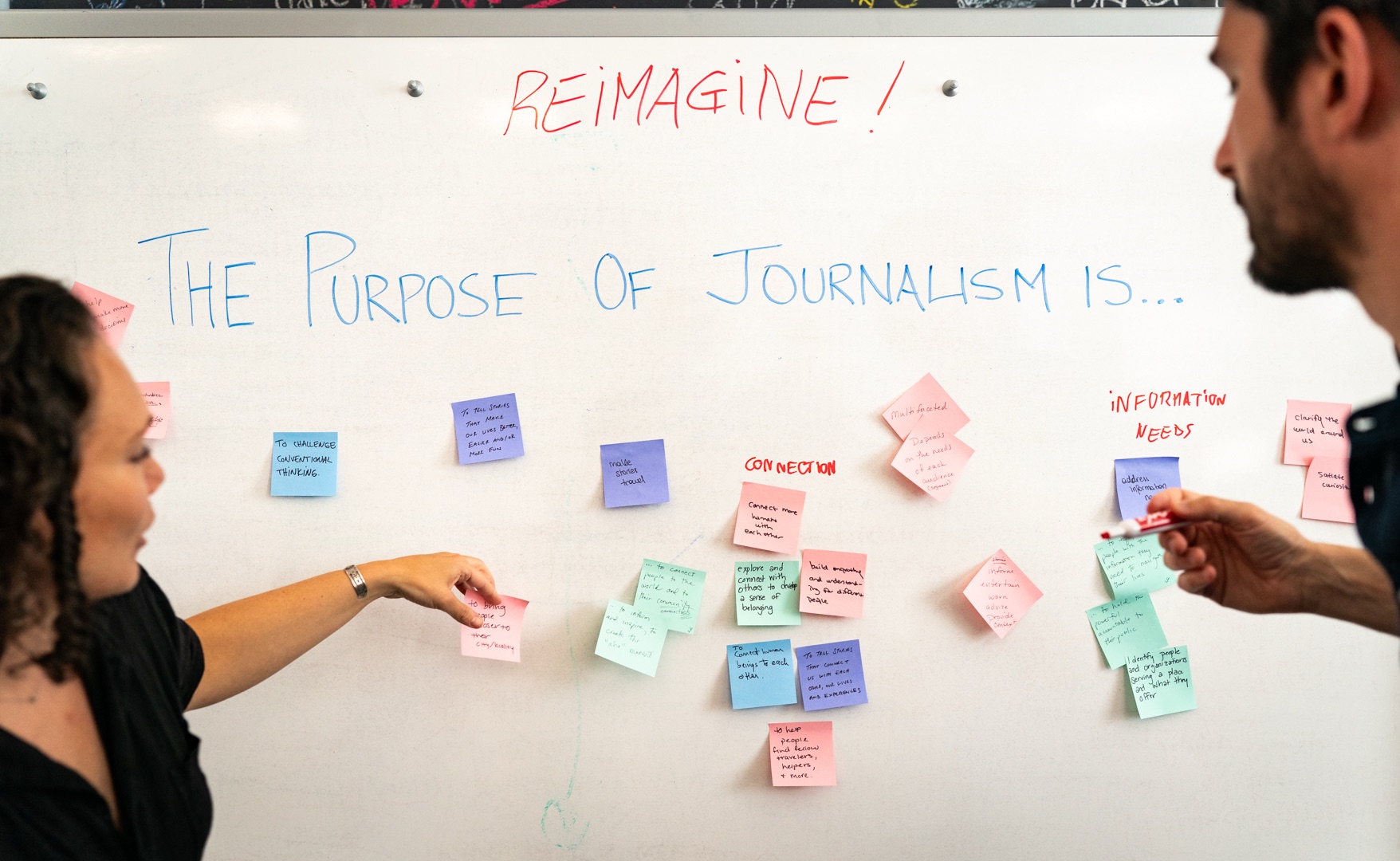Editor's note: Using ‘Hire humans. Not skills. Not roles.’ as our marching orders, the Lab's profiles are Q&As with highly-impressive makers and strategists from media (and its fringes), each with unique perspectives on journalism, publishing and communications technology. We’re after smart people shaping the ways we communicate with technology, and not all of them work in a newsroom. Catch up and/or follow the series here.
I want to be Karen McGrane when I grow up, and you should want to be her too. For more than fifteen years she has been solving real human problems around the way people interact with software using sophisticated user experience design and content strategy techniques. Her company, Bond Art + Science, has worked with The Atlantic, Fast Company, and Franklin Templeton on content strategy and information architecture. Previously the VP and national lead for user experience at Razorfish, she led major design projects for The New York Times, Condé Nast, and Disney and managed a diverse team of information architects, content strategists, and user researchers. She is a talented and engaging public speaker and her must-read book, Content Strategy For Mobile, was published last year.

Why is technology important to communications industries?
Every company is a technology company. Every business is in the user experience business. Every business needs to organize around building great digital products. This needs to be woven into to the very fiber of the organization.
Right now, “digital” and “technology” are still treated like they're bolted on. The digital team used to sit in the basement. Maybe today they're a bit more integrated, but in a separate-but-equal kind of way. I'm reminded of this quote from the novel Gone Girl:
“This was back when the Internet was still some exotic pet kept in the corner of the publishing world—throw some kibble at it, watch it dance on its little leash, oh quite cute, it definitely won’t kill us in the night.”
I think what's important about technology for the media industry is that it changes the way you work.
How do you explain what you do for a living to your parents and/or family-members?
I used to tell people I made websites, but that opened me up to all kinds of conversations about whether I could help them make a website for their goat-milking business, and, truth be told, I have no idea how to actually make websites. It's kind of like asking an architect to help you put up a garden shed.
Now I say that I “tell people how to fix what they're doing wrong on the internet.”
What are you working on these days?
I tell people how to fix what they're doing wrong on mobile. I'm busy.
What is the biggest tech challenge that media companies will face over the next 5 years?
The editorial process and publishing workflow needs to evolve to support print, web, and now a zombie apocalypse of mobile devices. This touches every corner of the organization even though it's often presented as a “technology” problem.
The workflow between print and web is shockingly cumbersome for most media companies. But we've been able to limp along since it was just those two platforms. With the growth of mobile we can't afford to maintain these really inefficient ways of working.
Some of this is a CMS problem. And, yes, fixing the CMS and figuring out how to publish via APIs is one part of the solution. But you can't fix your CMS unless you fix the underlying issues between print and digital. Fixing the technology is hard, but fixing the culture is way harder.
If you could change one thing about media today, what would you change?
I'd fast-forward the organizational and cultural changes within these companies so that they keep pace with the changes in user behavior.
You are working for yourself these days, correct?
I am incredibly grateful to live at a time, and to work in an industry, that offers so many different options for how to structure relationships with the organizations we work with. I spend a lot of time with my design management students talking about the benefits and drawbacks of working in different environments: large corporate, small corporate, startups, freelance, and agency.
Knowing myself and how I work, I am so much happier working for myself. I really like having the freedom to choose my clients and manage my own workload and I'm comfortable taking on the risks and burdens associated with doing so. I fear I've gone feral.
What is it like teaching a design management course at the School of Visual Arts?
I have an undergraduate degree in philosophy, and a master’s in science from an engineering school. I now teach a course in business in an MFA program. This is to say: you work on the web, being able to see the world through many different lenses is a real benefit.
I never would have expected to teach a management class (in a fine arts program, no less) but it's one of the most rewarding things I do. When I put the syllabus together, I thought of it as a guided tour through all the mistakes I've made in business. I don't expect to teach anyone how not to make these mistakes, but I will consider myself successful if, upon making the mistake, my students at least realize they've seen that problem before. To actually learn how to manage, you have to make the mistakes yourself.
What possibly not-well-known projects, companies or media outlets are doing exciting, innovative media, tech work and we should be paying attention?
I think very highly of the team at Arc90. People in the publishing industry probably know them from their read-it-later app Readability. They do a ton of really smart work, both working directly with media companies and building their own products.
What do you read religiously?
Secretly I really like Reddit. It rightly gets a lot of flak for displaying some of the worst impulses on the internet, but it also has some genuinely interesting and thought-provoking and moving content.
There is a subreddit for everyone.
What applications do you have open while you're working?
To paraphrase Homer Simpson: Twitter, the cause of and the solution to all of life's problems. Twitter is horribly distracting and yet I really like having it on in the background while I'm working.
Tell us a little more about this: “Her unprofessional work experience includes working in a hat factory and doing mall appearances as the Muppet Ernie.”
After college, I worked for the company that puts on Sesame Street Live, which was the only licensed manufacturer of human-sized Muppet costumes. Every once in a while they'd need someone to put on a Muppet suit for a parade or a mall appearance. I was the right height to play Ernie. After spending 30 minutes in that heavy, hot, stinky costume, I could not believe anyone could dance in it.
The hat factory was the only job I've ever walked out of. Enough said.
What is the biggest luxury in your life?
Room service breakfast eaten in my hotel room bed. I travel pretty frequently, and I love having someone bring me tea when I wake up.
Follow Karen McGrane on Twitter, @karenmcgrane. Find weekly updates from our profiles series on Fridays.
About the author





